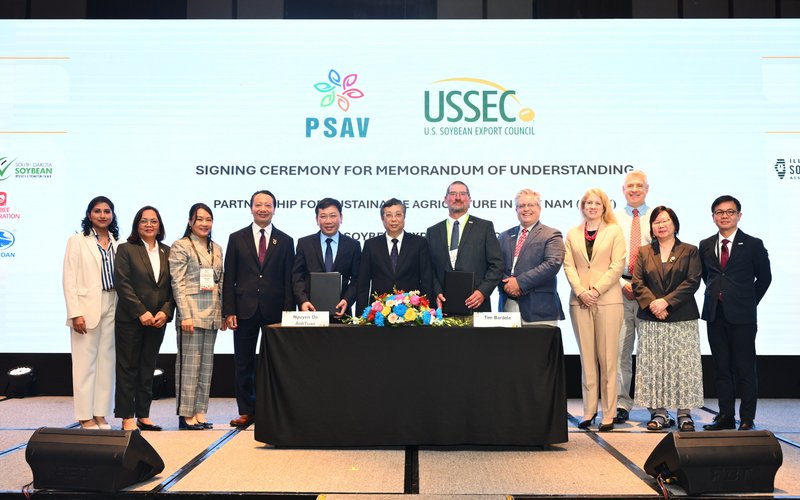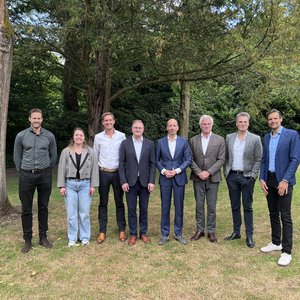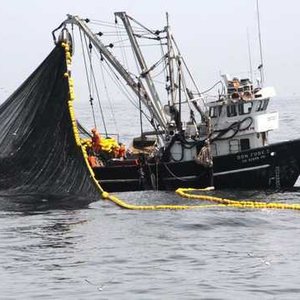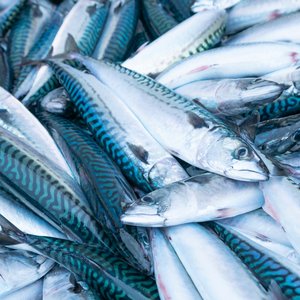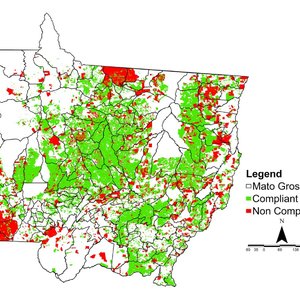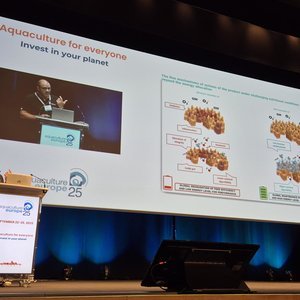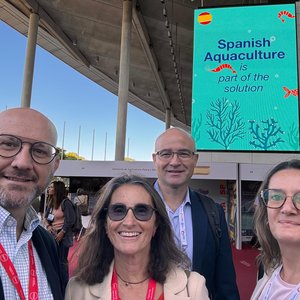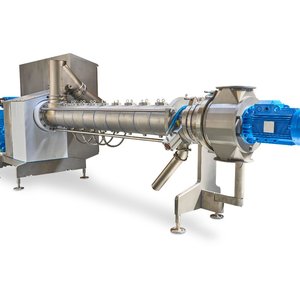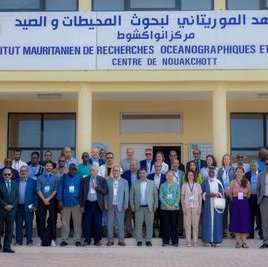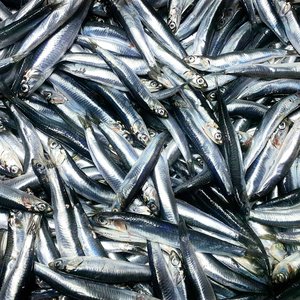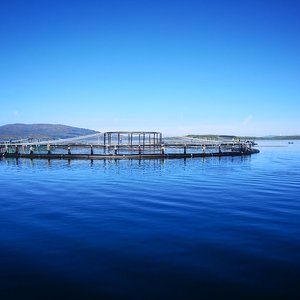The U.S. Soybean Export Council (USSEC) commemorated three decades of partnership between U.S. Soy and Vietnam at a milestone event in Ho Chi Minh City. The special event, titled USSEC 30th Anniversary in Vietnam: Sustainable Solutions with U.S. Soy, recognizes the strength of this enduring relationship and its role in supporting Vietnam's food, feed, and livestock sectors.
The event brought together leading agribusiness stakeholders, technical experts, and sustainability advocates from Vietnam and across Southeast Asia. The program featured keynote remarks, industry panel discussions, and interactive breakout sessions focused on sustainable food and feed solutions. A strategic roundtable on sustainability highlights shared goals in climate-smart agriculture, responsible sourcing, and long-term supply chain resilience, reinforcing the commitment of both U.S. and Vietnamese partners to collaboration, innovation, and environmental stewardship.
Over the years, U.S. soy farmers and Vietnam's feed, food processing, and aquaculture sectors have built a resilient partnership focused on improving food production, sharing knowledge, and promoting sustainability.
"It's been extraordinary to witness the growth of Vietnam's food and feed industries," said Timothy Loh, regional director for Southeast Asia & Oceania at USSEC. "This milestone marks three decades of collaboration between Vietnam and U.S. Soy."
Vietnam has become Southeast Asia's third-largest U.S. Soy importer and the world's 13th-largest soy consumer. In marketing year 2023/24 overall, Vietnam imported an estimated 2.2 million metric tons of whole soybeans and 5.9 million metric tons of soybean meal to meet growing demand.
Vietnam's rapidly modernizing feed sector and soybean crush facilities are creating more opportunities for U.S. Soy to support local production of pork, poultry, aquaculture products, and soybean oil. These trends are fueled by urbanization, a rising middle class, and shifting consumer preferences toward protein-rich diets.
Vietnam is now the world's sixth-largest pork producer and fourth-largest aquaculture producer. Aquaculture alone contributes 4-5% of national GDP. Soy has become a vital component of aquafeed, offering a high-quality, plant-based protein source to support the sector's continued growth. As demand increases, soybean meal consumption is forecasted to grow to 6 MMT in 2025, reflecting a recovery in feed demand and long-term market momentum.
At the same time, Vietnamese consumers are showing growing interest in plant-based options and soy-based foods. U.S. Soy's nutritional profile, origin traceability, and sustainability credentials make it well-positioned to support this evolving demand.
Celebrating 30 years of shared progress
The anniversary of U.S. Soy's partnership with Vietnam aligns with the 30th anniversary of bilateral relations between the two nations. Agricultural trade has been a cornerstone of this broader relationship, advancing food security, sustainability, and economic resilience on both sides.
"Long-term collaboration is at the heart of U.S. Soy's work around the world," said Jim Sutter, CEO of USSEC. "Vietnam's remarkable economic rise over the past 30 years has been mirrored by the growth of its soy demand, and U.S farmers are proud to have been a trusted partner every step of the way."
Forging the next chapter in U.S.-Vietnam soy cooperation
Marking a new chapter in U.S.-Vietnam agricultural engagement, USSEC and the Partnership for Sustainable Agriculture Development in Vietnam (PSAV), a unit under Vietnam's Ministry of Agriculture and Environment, signed a Memorandum of Understanding (MoU) during the conference to strengthen trade ties, foster industry collaboration, and support Vietnamese enterprises in accessing high-quality, sustainably produced soy products from the U.S. The MoU outlines efforts to strengthen Vietnam's agricultural sector by facilitating trade, promoting technical cooperation, and enhancing awareness of U.S. Soy sustainability programs such as the U.S. Soy Sustainability Assurance Protocol (SSAP).
"Vietnam's agricultural sector is committed to sustainable development and enhancing the competitiveness of our domestic industries," said Deputy Minister Hoang Trung of the Ministry of Agriculture and Environment in Vietnam. "This MoU with USSEC underscores our shared determination to build a reliable, transparent, and forward-looking supply chain—one that supports our economic and environmental goals while meeting growing demand for high-quality food and feed ingredients."


